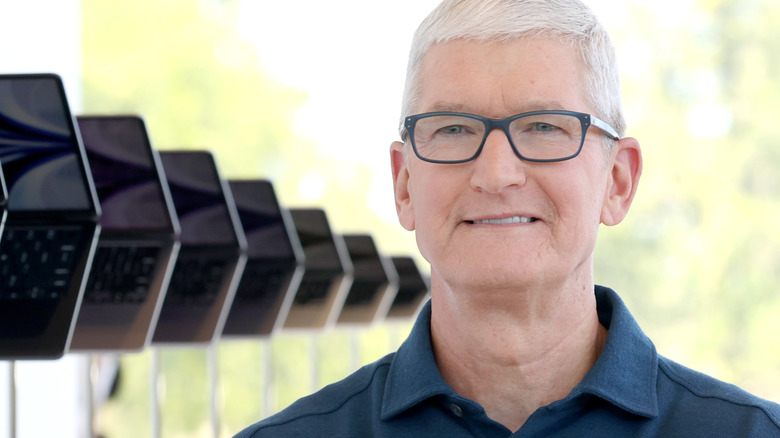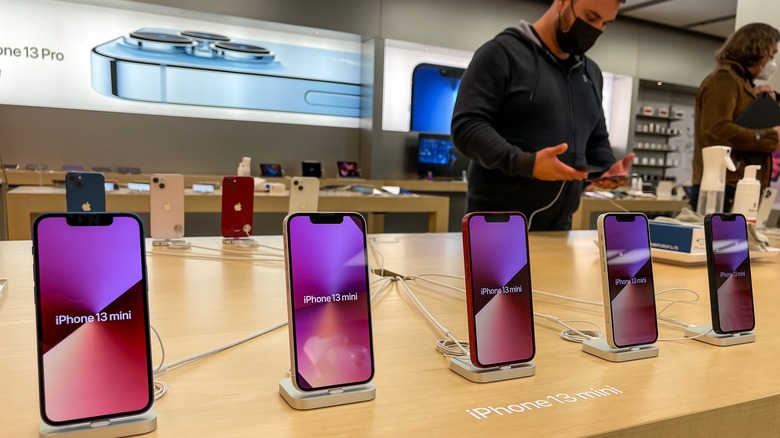Apple's Q3 2022 Winners And Losers
Apple has reported its Q3 2022 results, and while the tech industry — and the global economy in general — may be struggling to turn a profit, that same challenge doesn't appear to have slowed Tim Cook & Co. The Cupertino firm beat market expectations on both profit and revenue, recording $83 billion in revenues for the June quarter.
That's a 2% increase year over year, a number which may not sound quite so impressive compared to some of Apple's recent revenue bumps, but which still leaves it an outlier in the grand scheme of the tech industry as a whole. Rival behemoths like Microsoft, Intel, and Facebook-owner Meta have struggled with drooping sales and pinches in the manufacturing pipeline. Then again, they didn't have the iPhone to count on.
Indeed it's Apple's best-selling smartphone — most recently the iPhone 13 series, launched at the tail-end of 2021 — which has proved to be the salvation this quarter. iPhone net sales were up from $39.6 billion in Q3 2021, to $40.7 billion in the same quarter of this year.
Services strong, but hardware slumped
That helped offset a slump across the board elsewhere, as Apple's other hardware struggled to meet last year's sales performance. Mac, iPad, and the whole Wearables, Home, and Accessories categories all saw dips year over year. Speaking to CNBC, Apple CEO Tim Cook cited supply constraints as well as a strong dollar for the Mac shortfall.
A bright spot, though, alongside iPhone was Apple's Services business. That saw 12% in growth during the fiscal third quarter, driven by subscriptions to features like Apple Music and iCloud; Apple's cut of payments for App Store and iTunes downloads; and other licensing fees such as the money Google pays its competitor in return for being the search default on devices like iPhone and iPad.
Looking ahead — though Apple has declined to give any guidance for the fourth quarter — expectations are high for the second half of 2022. That will include sales of the new MacBook Air M2, using the latest version of the Apple Silicon chipset, along with — later in the calendar year — the launch of the iPhone 14 series. The new smartphones are expected to include both new and familiar chipsets, with Apple said to be aiming to better distinguish its iPhone 14 Pro models by reserving the newest, most potent SoCs for those more expensive models.

